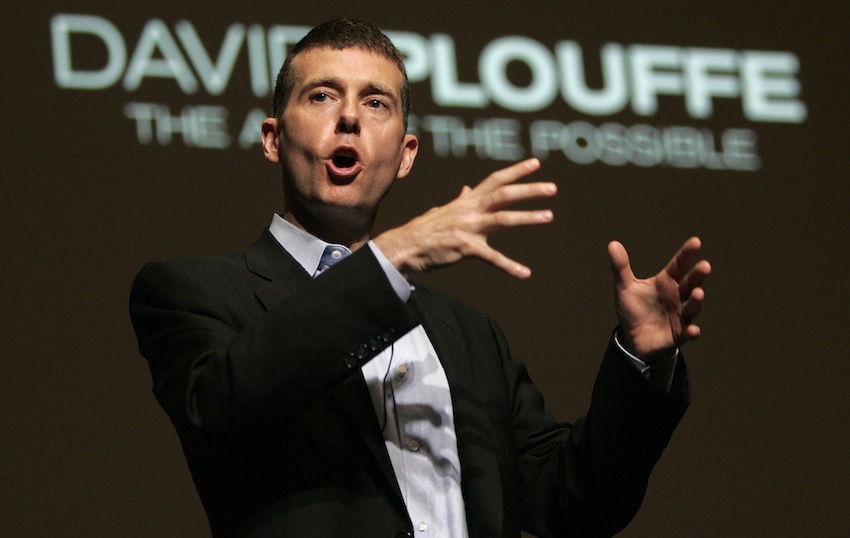Uber Is Arming Itself for a Political Fight

Associated Press
The car service app Uber has made a lot of friends in Boston (bringing people ice cream will do that for you), but it also has its share of tiffs. There’s the company’s battle for market share with its competitor Lyft. There are the vehement (occasionally misguided) protests from the taxi industry. And let us not forget Uber’s most existential battle in the political arena one. As if to remind us, Uber announced Tuesday that it’s hiring David Plouffe, former campaign manager and adviser to President Barack Obama, as its new senior vice president of policy and strategy. The theory behind the hire: don’t bring a tech executive to a political fight.
Since its inception, Uber has faced the threat of shutdown from regulators in many of the cities and states where it operates. They argue that it ignores rules put in place for livery vehicles. Massachusetts famously reversed a decision to halt the company’s operations, but Cambridge still flirts with attempts to regulate it. Uber CEO Travis Kalanick was open about the political motivation for bringing Plouffe on in a blog post announcing the hire:
[O]ur mission has become a surprisingly controversial topic. Over the years, what I’ve come to realize is that this controversy exists because we are in the middle of a political campaign and it turns out the candidate is Uber.
Here in Massachusetts, the move has already prompted a minor political item of note. Plouffe worked on Gov. Deval Patrick’s campaigns, and Patrick praised him (and by implication, Uber) after the announcement. “David Plouffe and Uber are a natural match. From my insurgent campaign in 2006 and since, David has shown an interest in and an appetite for challenging established ways—and winning. As we have seen in Boston, one of its first cities, so has Uber.” As BetaBoston pointed out, Patrick probably made no friends in the taxi industry with that one. But then again, he wasn’t doing much to answer their requests to shut down Uber in the first place.
And Patrick makes a good point. Like the Obama and Patrick campaigns, Uber has so far approached political threats with a grassroots approach, asking their fans to turn out for city council meetings and the like to protest any potential roadblocks municipalities might consider putting in Uber’s way. It’s been a mostly effective strategy, and with the decision to bring in a big gun to usher it forward, it seems like it’ll be likely to succeed. Whether you’re happy about that depends on, well, your politics.


